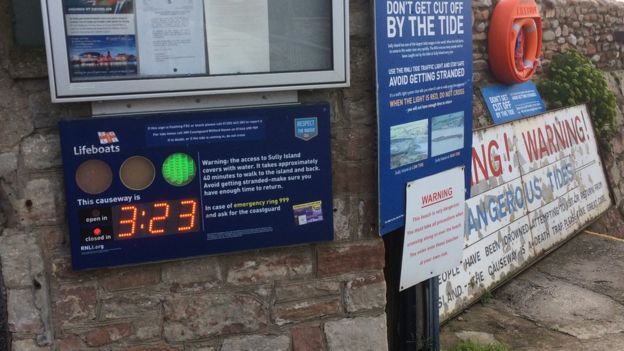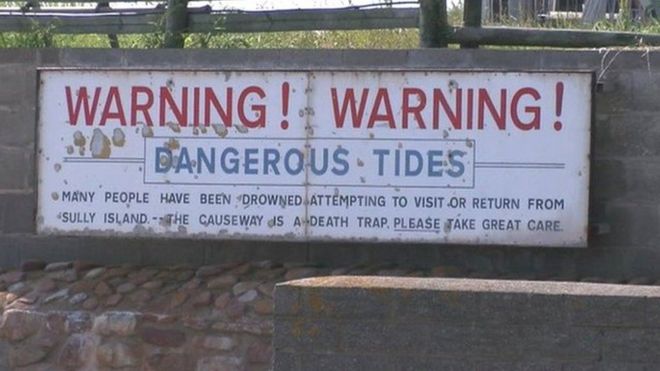What is it about Rhyl and inflatables? Rhyl, as regular readers may remember, was where a mother-and-son duo aboard an inflatable rubber ring were fished out of the Irish Sea by the long-suffering RNLI a few years ago and every summer since has brought more examples of pneumatic foolhardiness.
The latest occurred last week, when lifeboats were called out to look for a child who had 'fallen from an inflatable flamingo' some 400m from the beach. According to witnesses, the deflated bird retrieved from the water during the search (the RNLI web page helpfully includes a picture) was originally part of a flotilla of giant blow-up toys which included a 'white flamingo' (or possibly a swan?), a unicorn and a slice of pizza.
While there is no shortage of parents who, having reproduced, appear to be attempting to remedy the fact by casting themselves and their progeny adrift on inflatable toys in in an offshore breeze - the prevailing winds at Rhyl head more or less straight out to sea - and an outgoing tide (the flamingo call-out came an hour and a half after high water), this motley collection surely qualifies for special mention (or possibly an Arts Council grant).
This story comes only a few weeks after reports that the Rhyl lifeboat crew, called out to a small inflatable dinghy in difficulties in an offshore wind, found something strangely familiar about the situation:
Perhaps all this is an inevitable consequence of the ubiquitous health & safety culture pervading our schools and society as a whole. Remove the hazards from day-to-day living and the human race, in Gaia-esque self-regulation, is likely to discover for itself other ways of putting natural selection into practice for the good of the species.
The latest occurred last week, when lifeboats were called out to look for a child who had 'fallen from an inflatable flamingo' some 400m from the beach. According to witnesses, the deflated bird retrieved from the water during the search (the RNLI web page helpfully includes a picture) was originally part of a flotilla of giant blow-up toys which included a 'white flamingo' (or possibly a swan?), a unicorn and a slice of pizza.
While there is no shortage of parents who, having reproduced, appear to be attempting to remedy the fact by casting themselves and their progeny adrift on inflatable toys in in an offshore breeze - the prevailing winds at Rhyl head more or less straight out to sea - and an outgoing tide (the flamingo call-out came an hour and a half after high water), this motley collection surely qualifies for special mention (or possibly an Arts Council grant).
This story comes only a few weeks after reports that the Rhyl lifeboat crew, called out to a small inflatable dinghy in difficulties in an offshore wind, found something strangely familiar about the situation:
The two people in the vessel were immediately recognised as the same ones the crew had been called to on three previous occasions in the last month.Although the boat was equipped with an outboard motor, the engine lacked sufficient power to counteract the forces of wind and tide. One can imagine that it was through gritted teeth that the pair were subsequently 'given some strong advice' about basic seamanship; with that level of incompetence and carelessness out there, it must be only a matter of time before there simply aren't enough lifeboats and helicopters to go round.


